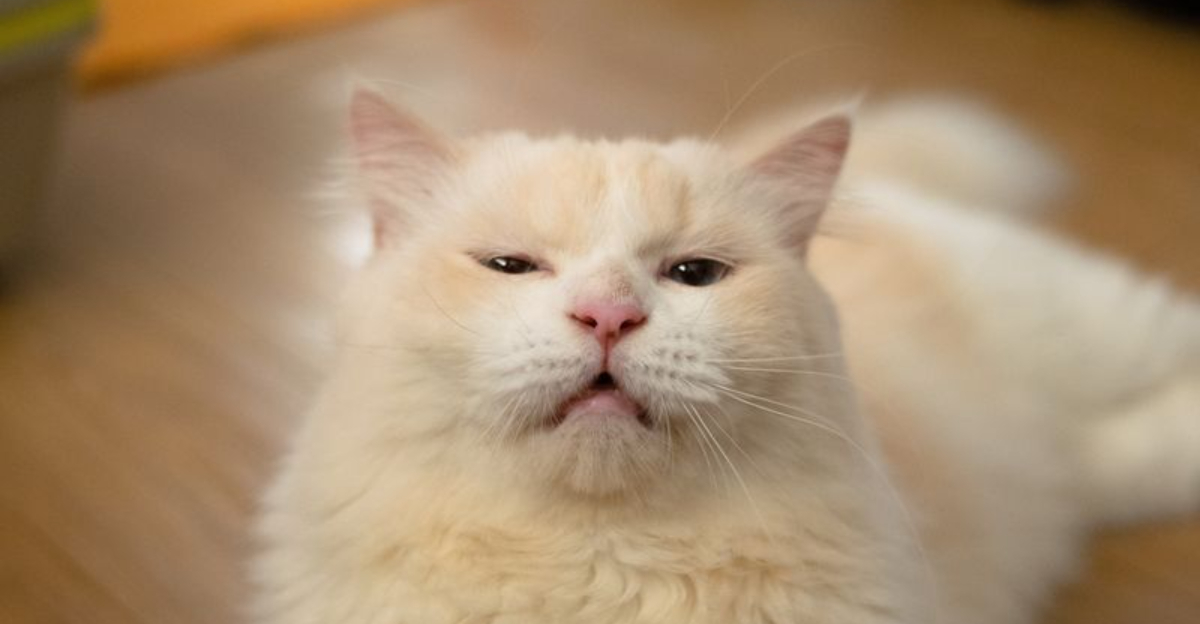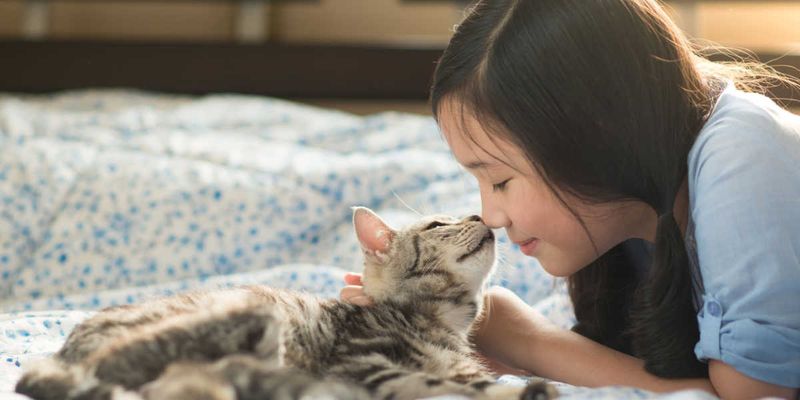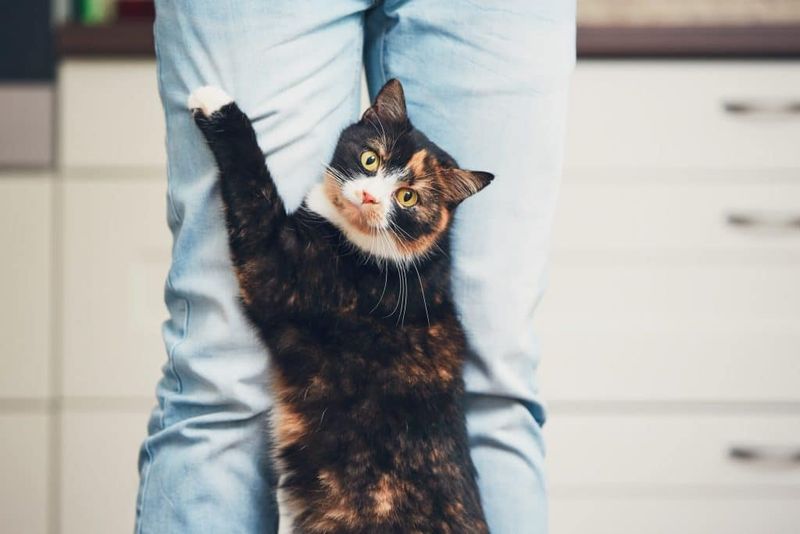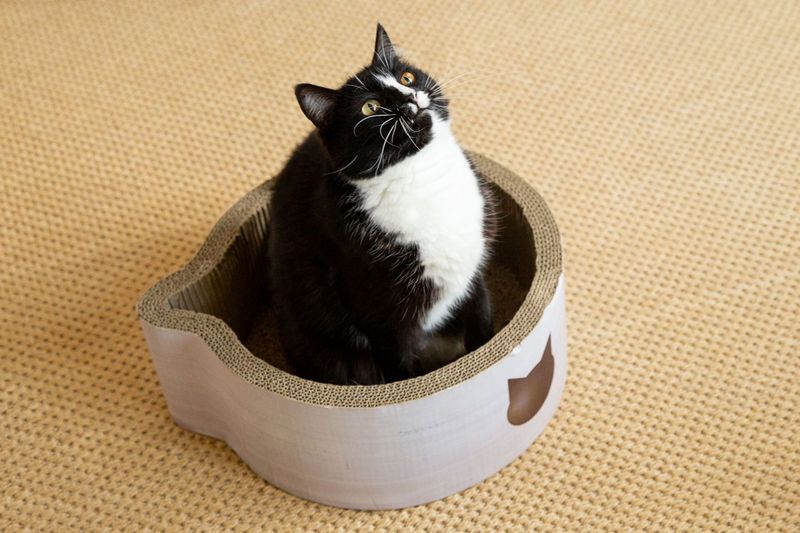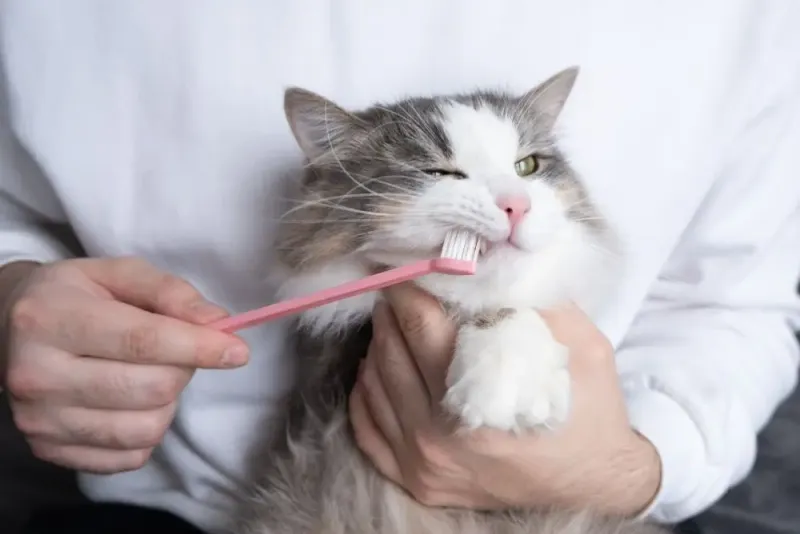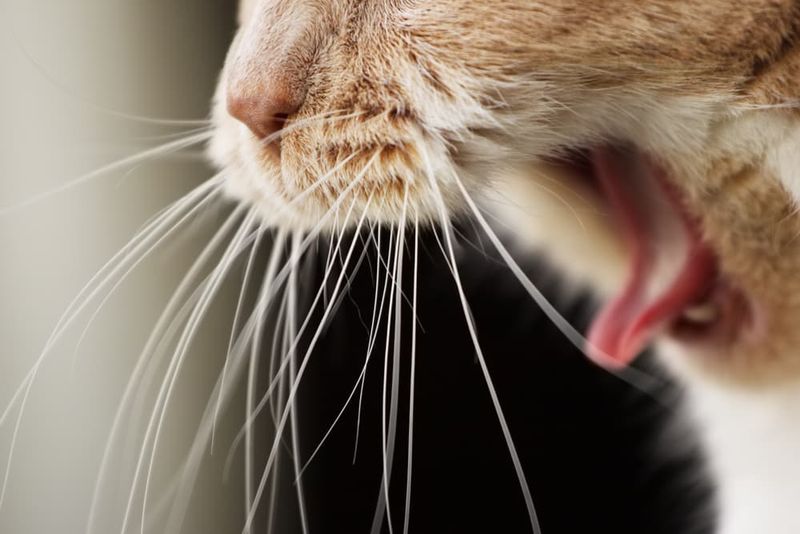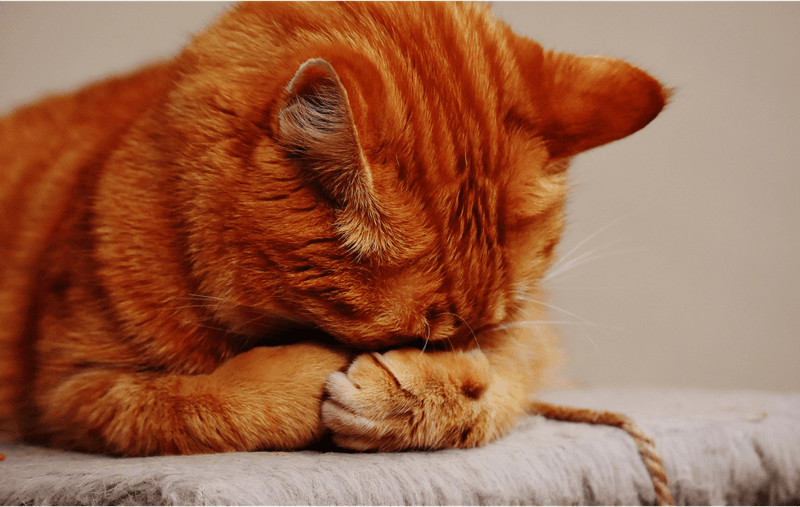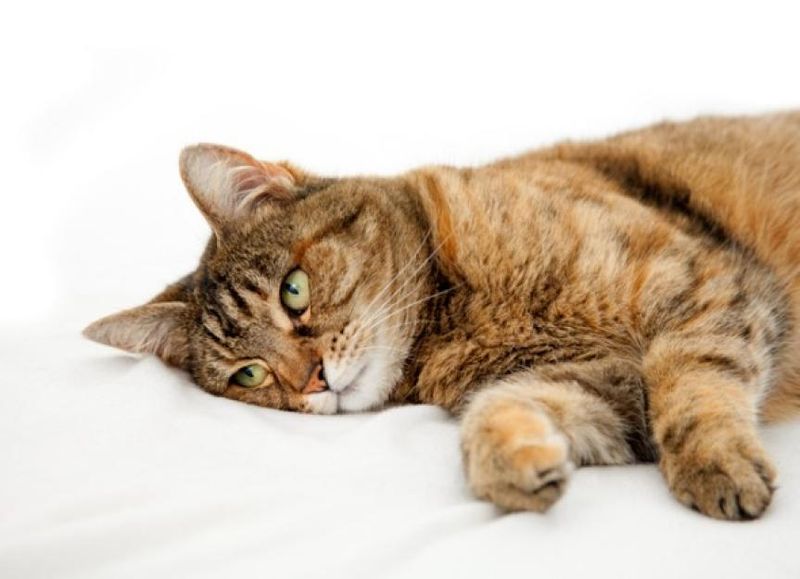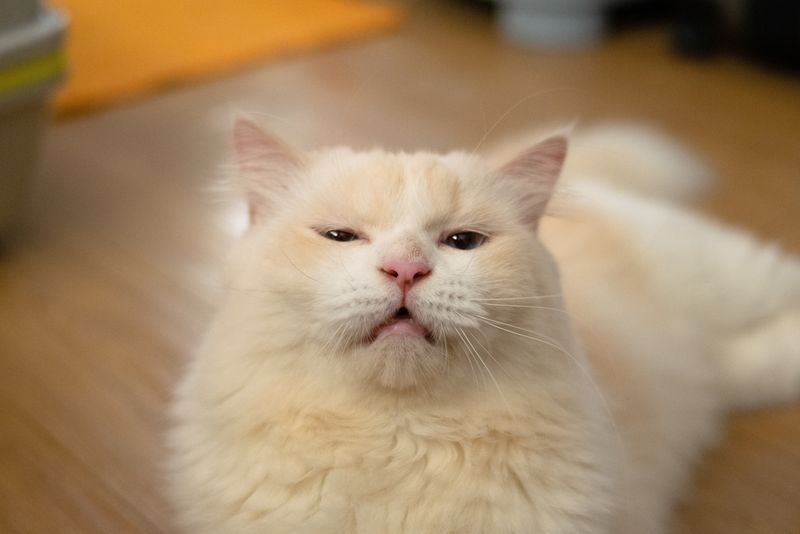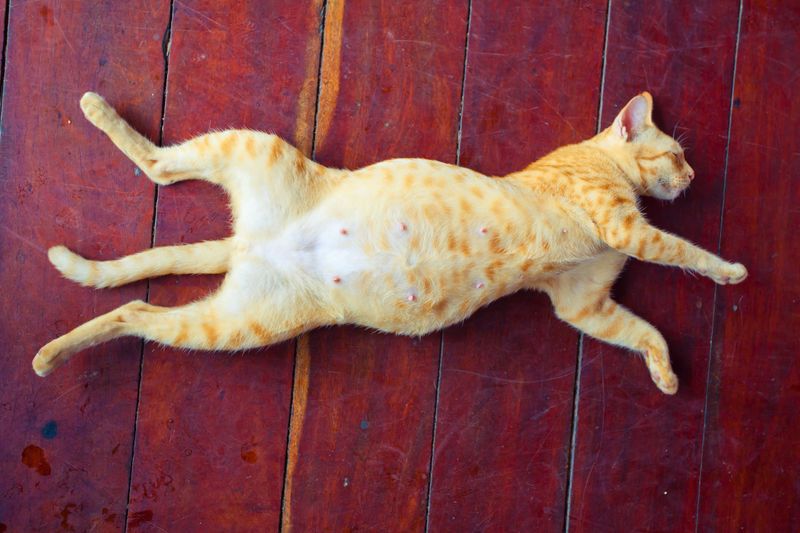📖 Table of Content:
- 1. Why does my cat lick their butt… and then lick my face?
- 2. Is it normal for my cat to hump things?
- 3. Why does my cat stare at me while pooping?
- 4. Is it bad that I’ve never brushed my cat’s teeth?
- 5. Why does my cat eat their own vomit?
- 6. Do cats get embarrassed when they fall or mess up?
- 7. Can my cat get depressed… or mad at me?
- 8. Why does my cat sniff other cats’ butts—or mine?
- 9. What’s the deal with cat nipples? Should my male cat have them?
Let’s face it—cats are weird. They exhibit behaviors that range from adorable to baffling to downright mortifying, and as loving cat owners, we’ve all found ourselves wondering, “Is that normal?” The truth is, there’s a whole list of cat-related curiosities we’d rather not bring up at the vet’s office for fear of sounding clueless or grossed out.
But here’s a little secret: your vet has heard it all before—and probably weirder. What feels awkward or silly to you is likely a routine question in the world of feline medicine. Cats are biologically and behaviorally different from us, and sometimes their instincts just don’t align with our social norms (or hygiene standards).
So, let’s break the silence. Whether it’s about licking habits, weird bathroom behavior, or bizarre emotional quirks, it’s time to get real about the awkward questions you’ve been too embarrassed to ask. Here are 10 cat conundrums—answered with zero judgment and all the facts.
1. Why does my cat lick their butt… and then lick my face?
It’s a classic moment of betrayal: your sweet kitty hops on your lap, gives you a loving lick on the nose—and you realize moments earlier they were deep in a butt-cleaning session. Grooming is instinctive for cats, and they don’t share our concerns about cleanliness or cross-contamination. They lick themselves (and each other) as a way of bonding, regulating scent, and staying tidy. When your cat licks you, it’s often a sign of affection and social bonding, the same way they’d groom another cat. Unfortunately, they don’t draw a line between “face” and “butt” the way we do. While the risk of illness is low for healthy indoor cats, it’s perfectly okay to discourage this behavior. You can gently redirect or wash up if you’d prefer your kisses bacteria-free.
2. Is it normal for my cat to hump things?
Surprisingly, humping isn’t just a dog thing—it can show up in cats too, and yes, even in neutered males or spayed females. While it can be sexually motivated, it’s just as often a result of overstimulation, stress, or a need to assert dominance. Some cats develop this behavior around specific objects like blankets, pillows, or even a favorite human’s leg. It doesn’t always indicate a medical issue, but it can be linked to hormonal imbalances or behavioral conditions. The key is to monitor how often it happens and under what circumstances. If it becomes excessive or aggressive, a vet can help rule out underlying problems or recommend behavior modification strategies. Either way, there’s no need to feel ashamed—this is a surprisingly common feline quirk.
3. Why does my cat stare at me while pooping?
There you are, minding your business, when your cat heads to the litter box—only to maintain intense eye contact while doing their business. This seemingly bizarre behavior is actually rooted in survival instinct. In the wild, eliminating waste is a vulnerable moment, and cats will often look to a trusted companion to stand guard. When your cat stares at you, they’re essentially saying, “I trust you to protect me while I do this.” It’s not meant to be awkward—it’s a sign of deep trust and reliance. Breaking eye contact or turning away can make your cat feel less secure, so if you can handle it, return the gaze. It may feel awkward, but it’s oddly sweet in its own way. Consider it the ultimate compliment in cat language.
4. Is it bad that I’ve never brushed my cat’s teeth?
You’re not alone—most cat owners skip dental care, either because they’re unaware it’s necessary or because the idea of brushing a cat’s teeth feels downright impossible. Unfortunately, skipping dental hygiene can lead to serious health problems over time, including gum disease, tooth loss, and even organ damage. Cats are masters at hiding pain, so many suffer silently from dental issues. The good news is it’s never too late to start, and even small steps like dental treats or special food can make a difference. If you’re brave enough, introduce a pet toothbrush and toothpaste slowly and gently. Your vet can also perform professional cleanings to get you started on the right paw. While it may feel silly at first, a clean mouth can add years to your cat’s life.
5. Why does my cat eat their own vomit?
Yes, it’s gross, but it’s also more common than you’d think. Cats are instinctively drawn to consume what they perceive as food—even if it’s regurgitated. Sometimes they throw up simply because they ate too fast or got a hairball, and then think, “Hey, that’s still edible!” In multi-cat households, it might also be a way to hide signs of illness or weakness from others. While it usually isn’t dangerous, frequent vomiting should always be checked by a vet. Occasional hairballs or food-related throw-up can be managed with diet changes or feeding techniques. But if your cat seems obsessed with re-eating vomit, it’s worth exploring whether there’s a behavioral issue at play. And yes, you can—and should—gently discourage it.
6. Do cats get embarrassed when they fall or mess up?
Everyone’s seen a cat leap, fail miserably, and then instantly act like it was all part of the plan. While cats don’t experience embarrassment quite like humans do, they are acutely aware of their environment and how others react. A clumsy moment may cause them to freeze, regroup, or walk away nonchalantly as if nothing happened. This behavior is thought to be driven more by self-preservation than emotional shame. Cats instinctively mask weakness to avoid looking vulnerable to predators. They might not feel embarrassed, but they definitely want to save face. It’s one of the reasons cats seem so dignified—until they knock over a lamp trying to jump on the fridge.
7. Can my cat get depressed… or mad at me?
Believe it or not, cats can absolutely experience complex emotional states. They may not hold grudges like humans, but they are sensitive to changes in their environment, routines, and relationships. A cat might act withdrawn, hide more, stop eating, or become aggressive if they feel stressed or sad. Major changes like moving, a new pet, or even a change in your work schedule can throw them off. They might not be “mad” in the human sense, but they can feel unsettled or insecure. Giving them space, enrichment, and affection can help rebuild their trust and comfort. Vets and behaviorists can also provide insight if the emotional changes persist.
8. Why does my cat sniff other cats’ butts—or mine?
Sniffing is one of the primary ways cats gather information. The area under a cat’s tail is rich in scent glands that communicate identity, reproductive status, health, and more. It’s like a feline handshake—intimate, but completely normal to them. If your cat is trying to sniff you in certain spots, it may be because you carry unfamiliar scents or they’re seeking reassurance. They don’t understand personal space the way we do, so this behavior is rarely malicious. Gently redirect them if it bothers you, but don’t feel alarmed. It’s just your cat being socially inquisitive in the most awkward way possible.
9. What’s the deal with cat nipples? Should my male cat have them?
It might surprise new cat owners to learn that yes, male cats have nipples—usually 6 to 8—just like females. These serve no purpose for males, but they develop in the womb before sex differentiation. It’s completely normal and not a cause for concern, even though it seems unexpected. Occasionally, pet parents mistake them for growths or ticks, but they’re harmless and symmetrical. It’s good to be aware of what’s normal so you can recognize if something changes, like swelling or discharge. Otherwise, there’s nothing you need to do about them. Consider it another reminder that nature doesn’t always design with logic—or modesty—in mind.
